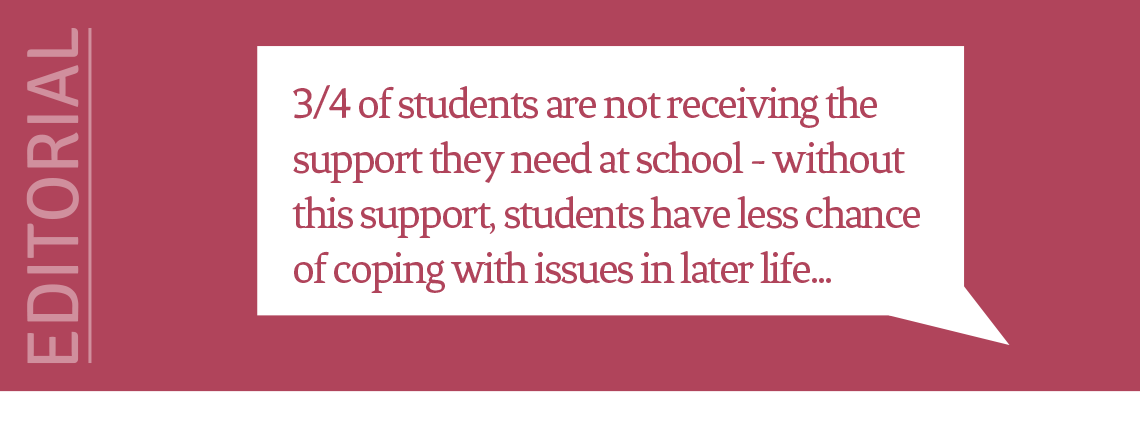More and more students are suffering from mental health issues in schools, but are their needs being met? Staffroom investigates.
The national decline in mental health has been well documented over the last few months, from Blue Monday in January, to University Mental Health Day on 19th February, to the launch of a new government mental health e-portal in March. We have arrived at a time of year when exam stress is rife; but, as the nights draw out, the problems remain.
Matching the high expectations of society has become a crippling source of pressure for many young people. This pressure to be perfect hits at an age when mental resilience is not yet fully developed, and is both caused and exacerbated by social media, whereby a benchmark is set for the lives we want to lead.
It is during school years that mental health issues frequently unfold, highlighting the importance of early intervention. With NIMH statistics showing that 50% of mental illnesses begin before the age of 14, and 75% before 24, schooling plays a pivotal role in developing robust, resilient students who are able to cope with the ever-changing demands of the outside world. Alarmingly, research shows that three-quarters of students are not receiving the support they need at school.
Without this support, students have less chance of coping with issues in later life. Universities are hotbeds of poor mental health, with 20% of students considering themselves to have a mental health issue. This has become a hidden part of university life, overridden by the stereotypical ‘student’ culture. Many students will have heard all about ‘Freshers’ Week’ before attending university, but would they have heard about the amount of time they will be spending alone? University life embodies new pressures, an acting interval between childhood and adulthood where students are neither one thing nor the other, but are expected to be having the time of their life. Are we doing enough in schools to prepare young people for this?
The good news is that awareness, charities and online provisions are getting better and better. Help is now available at the click of a mouse, but is that a good enough alternative to engaging with another human being? With mental health conditions, knowledge really is power, and if teachers were given the knowledge and confidence to tackle complex issues, a real dent could be made in that 75%. Better mental health leads to improved educational outcomes, benefitting students at a crucial stage of their lives.
The world is waking up to the reality of more frequent mental health issues, but are schools? As Osiris sets out to improve every aspect of education, we always find places for student wellbeing in our portfolio of courses. The autumn term brings Mindfulness and How to Support Mental Health in Schools, in recognition of the fact that mental health needs to be made a priority in education. SR

